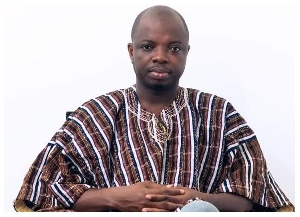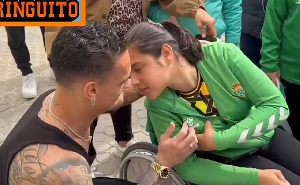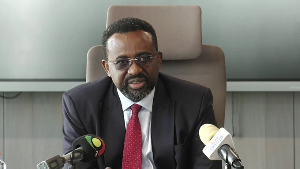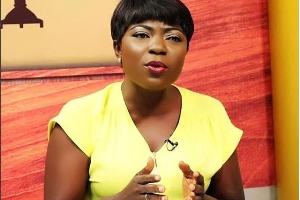There is this ambitious, if you like, audacious attempt by the African Union (AU) to “silence the guns” by 2020. By definition, and borrowing extensively from the AU “plan”, the aim of this laudable, and yet extremely confusing initiative is to “end all wars in Africa” by the year 2020.
And how? Well, at the 50th anniversary of the Organisation of African Unity (OAU), which later became the AU (OAU/AU) in July 2001, Heads of State and Government of the Assembly boldly declared, among other solemn declarations, “not to bequeath the burden of conflicts to the next generation of Africans” and “to end all wars in Africa by 2020”.
Truth be told, after this declaration, attempts have been made by Governments to address some of the factors that really account for or serve as motivation for gunrunning on the continent. Border security, as well as internal security in some countries, has improved in addition to efforts being made by Governments to ensure that state security is improved in most areas also.
But to silence the guns by 2020, the sea change must be felt more at the top, as strong political will works better than just moral persuasion. And, it appears also that, this view is strongly shared by the former President of Nigeria, General (rtd) Olusegun Obasanjo.
At a recent press conference on the upcoming Tana High-Level Forum on Security in Africa in Ethiopia, Gen Obasanjo told the gathering that it was apt when African leaders are blamed for the conflicts in the continent. According to the former president, some African leaders have failed to manage diversity in their societies, hence the attendant instability, on one part, and then the failure of some leaders to also prevent marginalisation in their societies; prevent injustice; reduce unemployment and reduce poverty.
“The repercussions are now being felt in Mali, Nigeria and the Sahel,” General Obasanjo said.
Clearly, for conflict to end in Africa, and by extension ending all wars by 2020, there is the need for a proper diagnosis of the contributing factors to the problem, and more so, the need for the strengthening of institutions to promote democracy and good governance.
The conflict situation in Africa cannot be underestimated and as it has been witnessed in some parts of the continent, introducing an all-inclusive government in the form of participatory democracy alone cannot solve the problem. Better institutions, however, can bring about the desired results in the end, as some say.
The crises in the Central African Republic and South Sudan, as well as in the wider Sahel region, are examples of how diverse the conflict situation on the continent is.
And, recent developments in connection with activities of small armed groups have not brought comfort. Not too long ago, gunmen killed at least 15 civilians and three soldiers in Grand Bassam, in Abidjan, Ivory Coast, bringing to the fore once again, the realisation that silencing the guns by 2020 might appear to be wishful thinking. Militants linked to al-Qaeda were blamed for the attack on the beach resort deemed popular with foreigners in Grand Bassam.
The commentary and analysis following the attack suggested that there were still problems within the country that made it possible for the attackers to succeed.
“It may be true that this could be the work of militants linked to al-Qaeda. Equally, it could also be because some disgruntled members of society aided whoever had planned such heinous attacks on the good people of this country. We have been through political upheavals in the past but we have moved on”, Ameen Diop, an Ivorian living in Accra said in an interview.
“However, it appears that the Government is only preaching democracy and not doing enough to manage the cultural diversity of this country; more so when the civil war of the past period virtually destroyed the social fabric. That cultural hegemony that made [us] one people, and [therefore] proud Ivorians for a long time is now destroyed, and believe me, today there is suspicion among common friends. This must be countered by the Government, by promoting strong social ties”, Diop maintained.
Broadly, it appears that Diop shares in the sentiments expressed by General Obasanjo when he [Obasanjo] claimed that managing diversity was as important as developing good governance and democracy if Africa was to witness an end to conflicts and, by extension, also situate it in the context of the African “gun plan”, to end all wars by 2020.
One other necessary requirement for African states, if the problems of gunrunning were to be stopped, is money - adequate funding.
African states need money to, not only beef up internal security and introduce counter-intelligence programmes to forestall the work of militants as they become more complex, but also to provide the necessary social amenities, including good education and better healthcare facilities, as well as micro economic activities in the form of employment. But the cash is either never there or never enough.
At the press conference by General Obasanjo, he gave a peep-in into how the financial situation of the AU itself could be troubled. The former president described how his efforts, even at the highest level, as head of state seeking funding for a high-level panel of AU came to nought. And then, recounting other experiences, described how looking for funds by the AU to counter the threat by the Ebola virus, for example, almost yielded nothing, until the private sector was approached.
“The AU eventually had to turn to the private sector and it was able to raise $40 million,” said General Obasanjo.
It is only four more years to the end of the 2020 target date and yet there appear to be no significant progress thus far. What is rather clear is that what in Africa appeared to be disgruntled people taking up arms to fight injustices of some sort - social exclusion, corruption, nepotism, poverty, hunger - is now changing into a complex web of human organisation using all means that fit the definition of terrorism.
So, as the source of worry globally now is terrorism- local and foreign threats- how will Africa respond, vis a vis the plan to end all wars by 2020?
"Every country in the world needs to be prepared to deal with terrorism and security”, says the US Ambassador to Ghana, Robert Jackson, on March 30 when he visited the Ashanti region of the country, advising Ghana to be equally prepared. “Ghana is not unique in that," he added.
"I think that we are becoming better prepared but we always need to be vigilant. If I have one message it is that we need to work together. It is an international problem and requires an international solution", the ambassador added.
Yes, international co-operation is what is needed and that must be supported by a strong political will for the “fight” to be successful. When the guns become sophisticated weapons, the strategy to counter must equally change.
Dr. Otabil, a financial journalist, is the CEO of the Ghana News Agency and a Regional Fellow of the Tana Forum, with research interests in economics, peace and security.
Opinions of Thursday, 31 March 2016
Columnist: Dr. Bernard Otabil


















